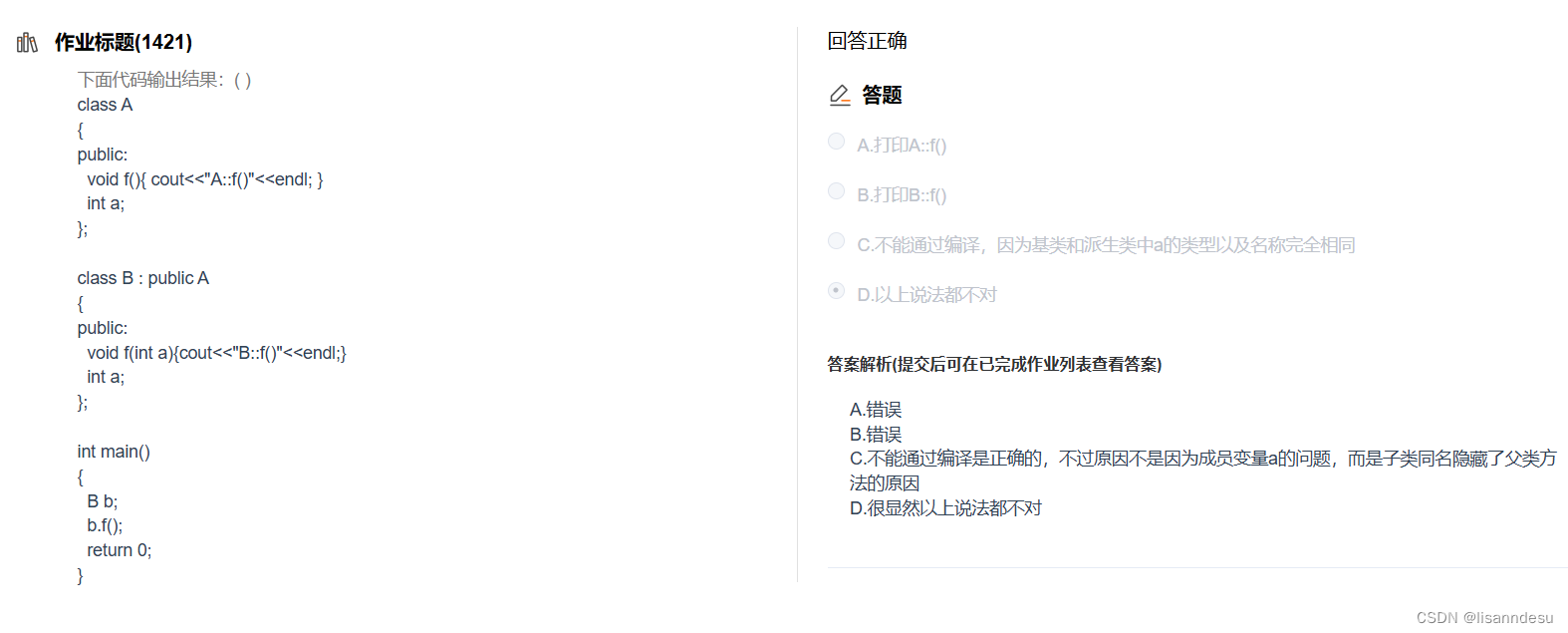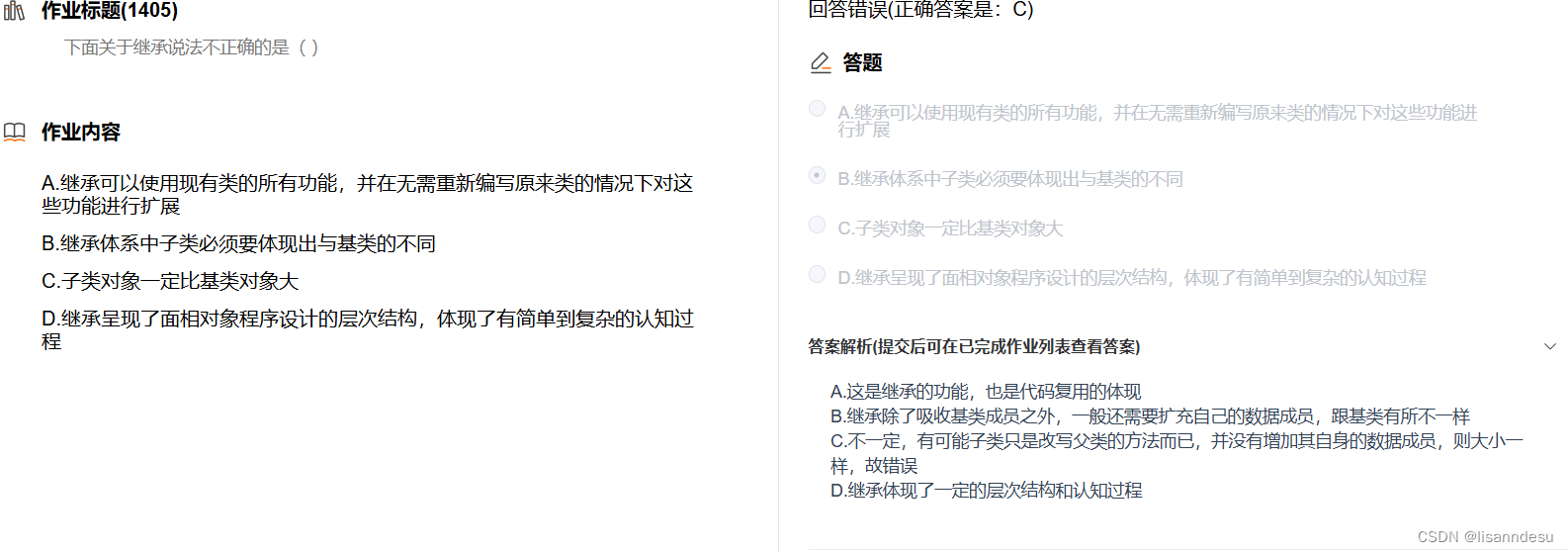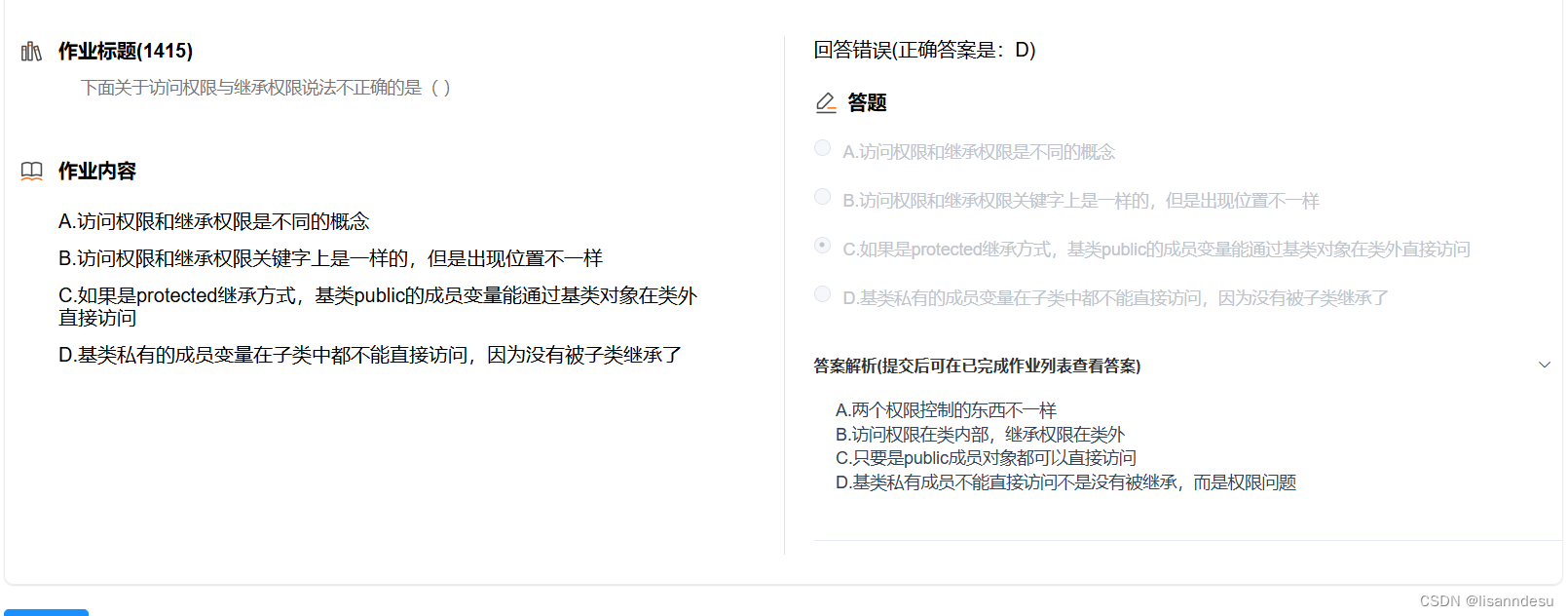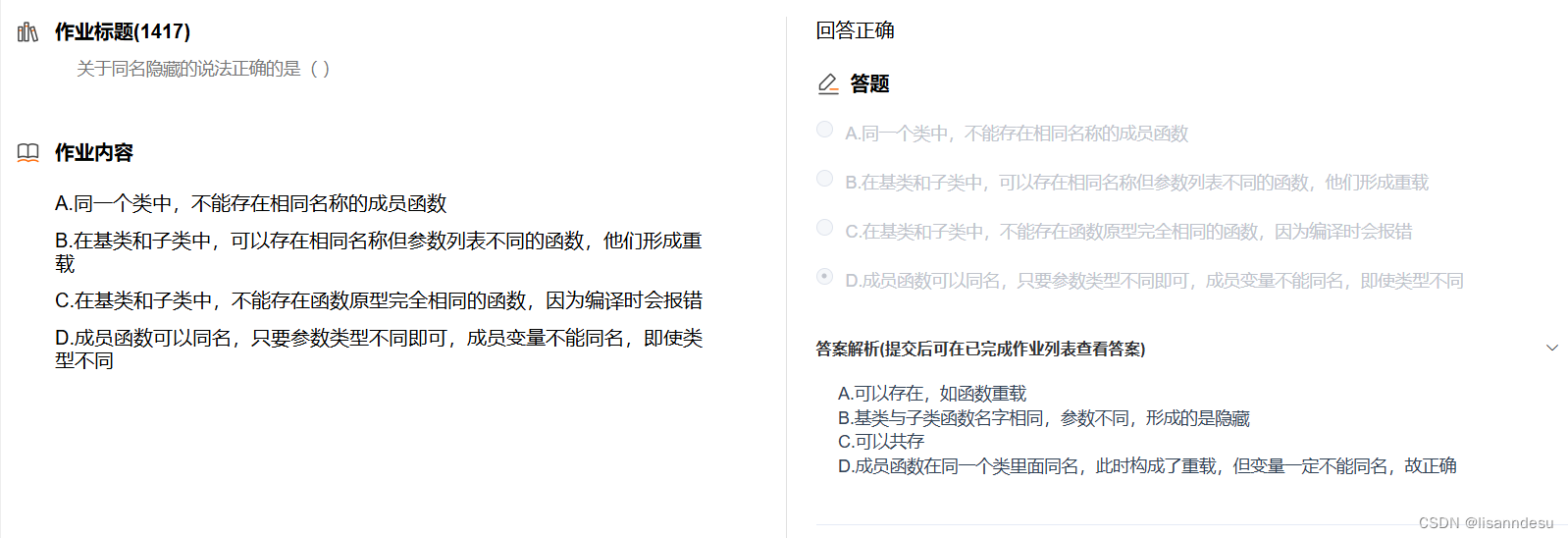本文主要是介绍继承-进阶-易错点,希望对大家解决编程问题提供一定的参考价值,需要的开发者们随着小编来一起学习吧!
子类同名方法隐藏父类方法
即使调用不匹配也不会再去父类寻找,而是直接报错
//下面代码输出结果:( )class A
{
public:void f(){ cout<<"A::f()"<<endl; }int a;
};class B : public A
{
public:void f(int a){cout<<"B::f()"<<endl;}int a;
};int main()
{B b;b.f();return 0;
}
易错:父子类大小关系

private不能被继承(why)


基类中的private成员不可被继承,虽然子类中存在父类中的private成员。之所以说不可继承是因为“继承”通常指的是能否直接访问和使用父类的成员,而不是空间上是否含有相应成员
友元函数不可被继承
类似于 : 父亲的朋友不一定是儿子的朋友
子类和父类共享继承来的静态变量

实例代码:
#include <iostream>class Parent {
public:static int sharedStaticVariable;static void display() {std::cout << "Parent's sharedStaticVariable: " << sharedStaticVariable << std::endl;}
};// 定义并初始化静态成员变量
int Parent::sharedStaticVariable = 42;class Child : public Parent {
public:static void displayChild() {std::cout << "Child's sharedStaticVariable: " << sharedStaticVariable << std::endl;}
};int main() {// 通过父类访问静态变量std::cout << "Access through Parent:" << std::endl;Parent::display();// 通过子类访问静态变量std::cout << "Access through Child:" << std::endl;Child::display();// 修改子类中的静态变量Child::sharedStaticVariable = 100;// 再次通过父类访问静态变量std::cout << "Access through Parent after modification in Child:" << std::endl;Parent::display();// 再次通过子类访问静态变量std::cout << "Access through Child after modification in Child:" << std::endl;Child::display();return 0;
}运行结果:
Access through Parent:
Parent's sharedStaticVariable: 42
Access through Child:
Parent's sharedStaticVariable: 42
Access through Parent after modification in Child:
Parent's sharedStaticVariable: 100
Access through Child after modification in Child:
Parent's sharedStaticVariable: 100
同名隐藏

这篇关于继承-进阶-易错点的文章就介绍到这儿,希望我们推荐的文章对编程师们有所帮助!







![[MySQL表的增删改查-进阶]](https://i-blog.csdnimg.cn/direct/626d73342e0c406894e1017eafd30cf2.png)